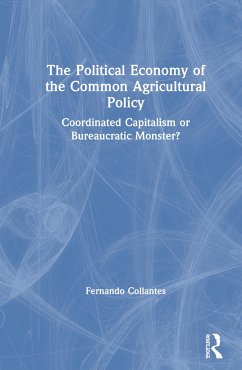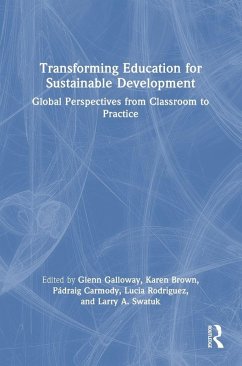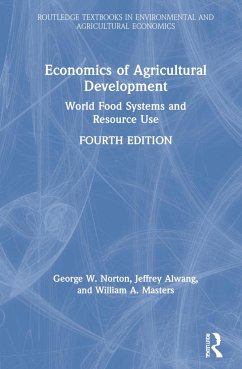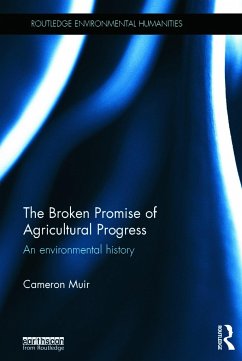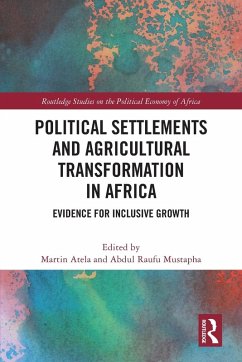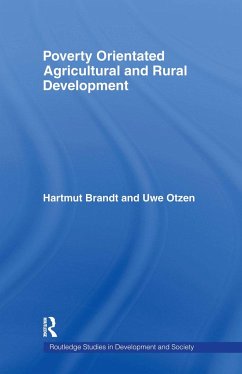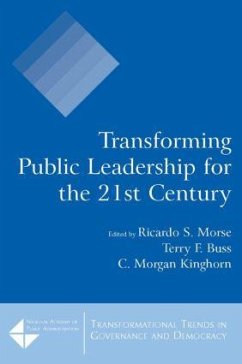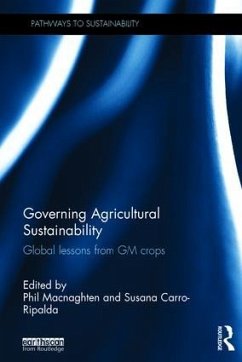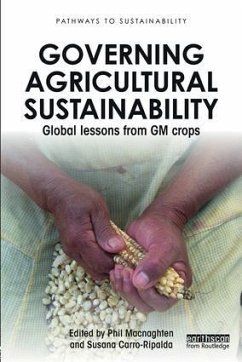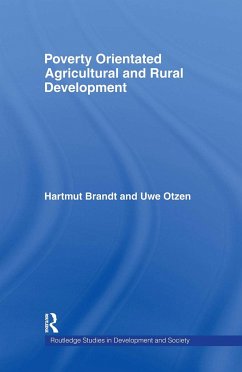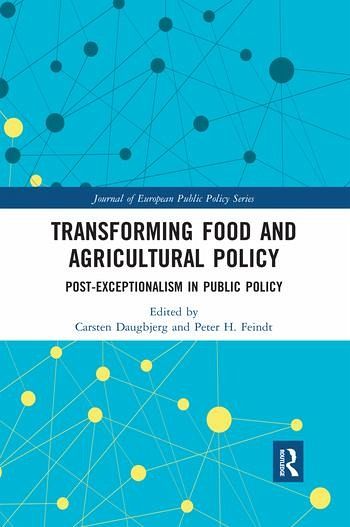
Transforming Food and Agricultural Policy
Post-exceptionalism in public policy
Herausgeber: Daugbjerg, Carsten; Feindt, Peter
Versandkostenfrei!
Versandfertig in 1-2 Wochen
54,99 €
inkl. MwSt.

PAYBACK Punkte
27 °P sammeln!
Western democratic welfare states often featured sectoral governance arrangements where governments negotiated policy with sectoral elites, based on shared ideas and exclusive institutional arrangements. Food and agriculture policy is widely considered an extreme case of compartmentalized and 'exceptionalist' policy-making, where sector-specific policy ideas and institutions provide privileged access for sectoral interest groups and generate policies that benefit their members. In the last two decades, policy exceptionalism has been under pressure from internationalization of policy-making, in...
Western democratic welfare states often featured sectoral governance arrangements where governments negotiated policy with sectoral elites, based on shared ideas and exclusive institutional arrangements. Food and agriculture policy is widely considered an extreme case of compartmentalized and 'exceptionalist' policy-making, where sector-specific policy ideas and institutions provide privileged access for sectoral interest groups and generate policies that benefit their members. In the last two decades, policy exceptionalism has been under pressure from internationalization of policy-making, increasing interlinkage of policy areas and trends towards self-regulation, liberalization and performance-based policies. This book introduces the concept of 'post-exceptionalism' to characterize an incomplete transformation of exceptionalist policies and politics which preserves significant exceptionalist features. Post-exceptional constellations of ideas, institutions, interests and policies can be complementary and stable, or tense and unstable. Food and agriculture policy serves as an example to illustrate an incomplete transformation towards a more open, contested and networked politics. Chapters on agricultural policy-making in the European Union and the United States, the politics of food in Germany and the United Kingdom, transnational organic standard setting and global food security debates demonstrate how 'postexceptionalism' helps to understand the co-existence of transformation and path dependency in contemporary public policies. The chapters in this book were originally published as a special issue of the Journal of European Public Policy.





